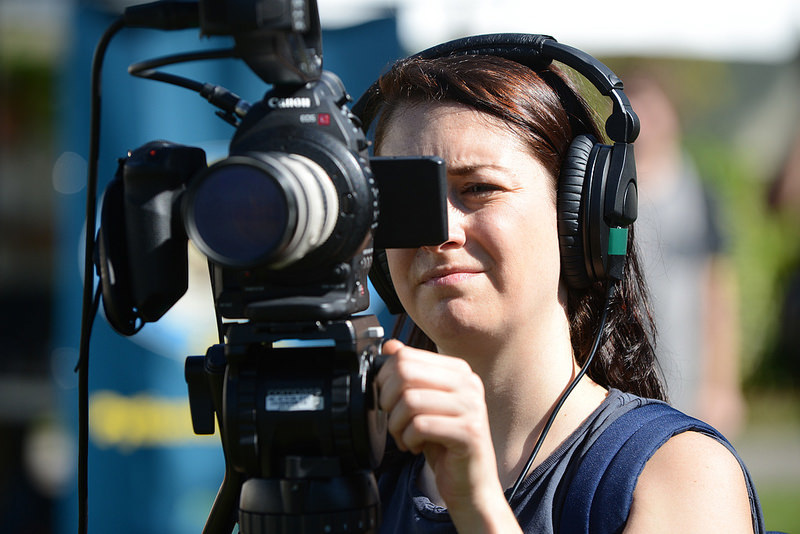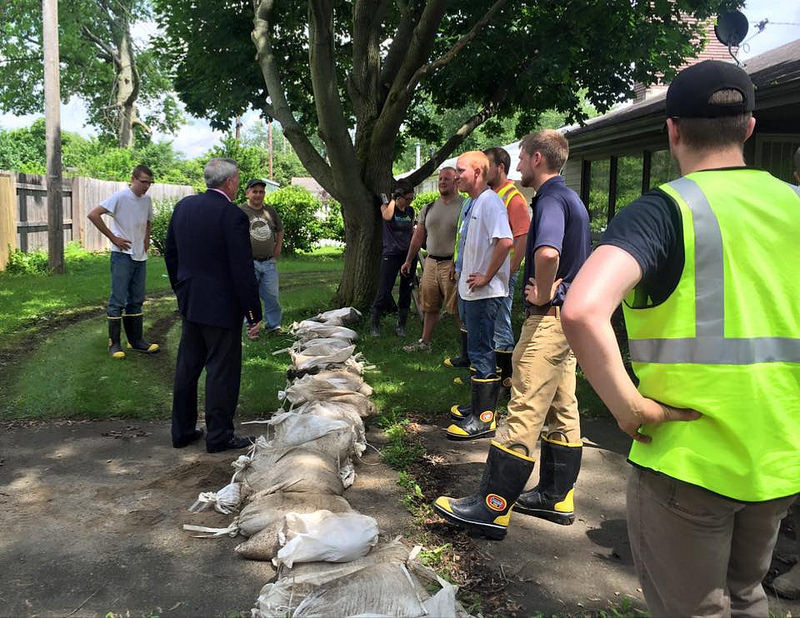|
Public relations professionals are often accused of "spinning" a story, or stretching the truth. If you believe in stereotypes, the average public relations professional is someone who is trying to sell the public on half-truths to make the big bucks.
At Mack Communications, at least, this is far from how public relations works. The goal of public relations is to help individuals, companies, and officials tell their story. Many companies don't know how to do this best, or how to explain their work to the public in an clear way. Public relations uses "spin" to tell a client's side of the story.
0 Comments
This is part one in a three-part series on how to conduct a successful interview with the media.
Being interviewed by the media can be nerve-wracking, no matter how many times you’ve done it. However, interviews don’t have to be painful experiences; with the right amount of understanding and preparation, anyone can make it through an interview like a pro. The best way to ensure you start off on the right foot is to understand the media, so you better know what to expect. Before your interview, consider the following points: If waiting for positive media coverage isn’t cutting it, consider submitting an Op-Ed. These opinion pieces are a good way to get your message across, promote action, and position the author as a “thought leader.” However, convincing a steely magazine or newspaper editor to publish your writing isn’t always easy. In addition to the usual grammar and style checks, we recommend making sure your Op-Ed has the following elements to give it a better chance of passing muster with an editor.
The internet and social media make it easier than ever to spread information (factual or not) like wildfire. If your company or organization has big news to share, choosing to make a big announcement gives you more control over the message and tone of your news (rather than waiting for the media to find out on its own).
Here are three things to consider before making big announcements:
With today’s endless news cycle, it’s more important than ever to respond to crises promptly and directly. That’s one reason why having a crisis communications plan in your back pocket is so important. It’s good to have facets of your plan memorized however, just in case you get caught off-guard by a particularly persistent reporter.
Although it’s best to always answer as honestly and directly as you can, keeping these five questions in mind may help you have more confidence in reassuring the public. 1- What happened? Mack advice: Only tell what you know, and avoid speculation. 2- Why did [problem] happen? Mack advice: Be willing to admit fault, but avoid pinning blame on anyone/department in particular. Making guesses can hurt the reputation of parties in the short run that weren’t involved at all. 3- Can this problem happen again? How do you know? Mack advice: Be honest. Reassure the public that you’re doing everything to solve the current issue. 4- What are you doing to solve the problem? Mack advice: Again, honesty is key. People want to see companies take action after a crisis, so give tangible examples of what your employees are doing to solve the problem. 5- Who else can we talk to and where can we receive updates? Mack advice: It’s important to have a website available for crisis situations that can provide updates to the public. Be sure you can direct people there if asked. Great media relations is really hard work. It's where the term "earned media" gets its name. And while technology is making it easier and easier to get your press release into the hands of reporters and editors, it's also much tougher to get them to pay attention.
Don't gloss over that last point. It's really tough to get the media to pay attention. So, how can you improve your odds? The media abhor a vacuum. If you make them guess, they just may go looking for answers anywhere they can find them.
And yet, time after time, firms and organizations try to keep the lid on information during a crisis, believing it's better to say little if anything. It's probably human nature, lawyers or a combination of both that prompts the tight-lipped response. If you choose to follow that path, good luck. Be prudent. Be careful. But beware the impact of saying nothing. Why? Think through the possible scenariosIt's one thing to say you're going to prepare for a crisis, but quite another to take the additional steps of assessing what possible crises you might face in the future. In other words, there is no one specific crisis that may occur.
So, one of the first steps in crisis planning is an accurate assessment of what might go wrong that could trigger the need to communicate with the public, employees and/or stakeholders. Think it through and you'll likely come up with several possible scenarios. A press release is a great way to convey your announcement or news item, but it's often not enough to do the job. There are often other resources that reporters will need and want in order for them to effectively tell your story.
VISUALS Let's start with visuals, which can be anything from head shots of your CEO to shots of the factory floor to graphs depicting your latest quarterly results. Images are more powerful today than ever because most everything gets posted to media websites or Facebook. Even radio reporters who never had to worry about visuals in the past are now asked to snap photos and shoot video of the events they cover. Think ahead to what images will help make your story more compelling. What parts of your announcement can be told in pictures? Can you supply the images or allow photographers access to key places where they can get their own?  Earned media is one of the most effective ways to tell your story. By having a credible news organization or online publication carry about a story about you or your products and services, you will reap incredible benefits. But, earned media is called "earned" for a reason. You have to work at it. It takes one's proverbial blood, sweat and tears, not to mention time. Unfortunately, many people don't have the patience for an earned media campaign. They want instant results. I once heard a successful businessman say that he demanded to know of a prospective public relations firm just how many placements he could expect for his monthly retainer. When the firm couldn't guarantee a specific number he said he wasn't interested. |
tags
All
Archives
March 2019
|
Photos from Meet the Media Guru, Joseph.Morris, BoldContent, MDGovpics, Grzegorz Łobiński, Mr Moss, North Charleston, ITU Pictures, wistechcolleges, .v1ctor Casale., www.audio-luci-store.it, katielips, editor64, NeighborLink Fort Wayne, AMagill, timsackton, MyFWCmedia, Matt J Newman, Mr.TinDC, Skley, mikecogh, othompsonski, wayne's eye view, Elvert Barnes, woodleywonderworks, North Charleston, MoBikeFed, flossyflotsam, North Charleston, NYCDOT, US Mission Geneva, jjandames, aalborgstift, BurnAway, A. Germain, North Charleston, NCDOTcommunications, IAEA Imagebank, The Chapman Cultural Center, hitsnooze, Wiertz Sébastien, charliekwalker, cliff1066™, TheeErin, woodleywonderworks, dane brian, Aramil Liadon, 2010 World Wheelchair Basketball Championships, Ty Nigh, freddthompson, Nadia Szopinska, west.m, stormwarning., Bright Meadow, Giorgio Montersino, Chris Erwin, Aplomb, jfingas, joce01_y, Massachusetts Dept. of Environmental Protection, Kevin Walter, Andrew Feinberg, Yan Arief, kellypretzer, Korean Resource Center 민족학교, veDro - l'Italia al futuro, crdotx, US Mission Geneva, Joe Shlabotnik, esocialmediashop, Stephen Cummings, CarbonNYC, sidewalk flying, MoBikeFed, marksdk, Marco Raaphorst, Saleel Velankar, adactio, edkohler, World Economic Forum, USACE Europe District, stereogab, Florin Rosoga, MikeSchinkel










